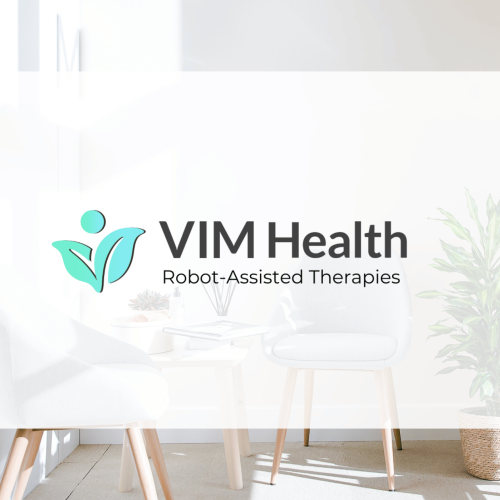When it comes to neurorehabilitation, no single professional holds all the answers. Recovery from conditions such as stroke, brain injury, spinal cord injury, multiple sclerosis, and other neurological diagnoses is complex — affecting not just physical function, but cognition, communication, emotional wellbeing, and daily life skills.
That’s where a Multi-Disciplinary Team (MDT) comes in. In neuro rehab, a Multi-Disciplinary Team brings together experts from different fields who work collaboratively, share knowledge, and create personalised treatment plans that address the whole person — not just the symptoms.
What is a Multi-Disciplinary Team in Neuro Rehab?
A Multi-Disciplinary Team is a group of healthcare professionals from different specialisms who meet regularly to discuss each patient’s needs and progress. Rather than working in isolation, they pool their expertise to design a coordinated approach. This ensures treatment is comprehensive, targeted, and responsive to changes over time.
At Vim Health, our neuro rehab Multi-Disciplinary Team is made up of:
- Physiotherapists – focusing on movement, strength, balance, and mobility, often using advanced rehabilitation technology.
- Occupational Therapists – helping people regain independence in daily activities, from self-care to returning to work or hobbies.
- Speech & Language Therapists – supporting communication, cognitive function, and swallowing difficulties.
- Neuropsychologists – addressing emotional wellbeing, coping strategies, and the psychological impact of living with a neurological condition.
- Rehabilitation Assistants – providing hands-on support between therapy sessions to reinforce progress.
Every member of the Multi-Disciplinary Team has a different focus — but they all share a single goal: to help the patient achieve the best possible quality of life.
Why an MDT Approach Works
Recovering from a neurological condition is rarely straightforward. Progress might be rapid in one area, such as physical strength, but slower in another, like speech or coordination. Without a Multi-Disciplinary Team, these different areas could be addressed separately — risking gaps in care or conflicting approaches.
An MDT prevents this by:
- Seeing the Bigger Picture – Therapists share insights that may influence one another’s work. For example, a physiotherapist might adjust an exercise plan if the occupational therapist notes fatigue during daily activities.
- Saving Time and Energy – Patients don’t need to repeat their story to each clinician. The team already has a shared understanding of goals and progress.
- Adapting Quickly – If recovery stalls or new challenges arise, the team can adjust the plan in real time.
- Providing Consistency – Everyone is working towards the same agreed objectives, creating a clear and unified path forward.
The MDT Process in Action
A patient joining our neuro rehab programme will usually start with a comprehensive assessment, often involving several MDT members. From there, the team develops a cohesive treatment plan that sets realistic short- and long-term goals.
Regular Multi-Disciplinary Team meetings allow the team to:
- Review progress and adjust interventions
- Share observations from different therapy sessions
- Discuss any barriers, whether physical, cognitive, or emotional
- Plan next steps and agree priorities
This collaborative process means treatment is never static — it evolves alongside the patient’s recovery.
The Human Side of a Multi-Disciplinary Team
Beyond the clinical benefits, an MDT offers something equally important: reassurance. Patients and their families know they are supported by a united team who understand the full scope of their needs.
For example, a patient recovering from a brain injury may feel frustrated by slow speech progress. The speech therapist can share strategies for communication, while the psychologist addresses the emotional impact, and the physiotherapist helps maintain motivation through visible physical improvements. Together, the MDT can provide a balanced, hopeful perspective.
Case Example: Turning Potential into Progress
One of our clients, following a brain injury, faced multiple challenges: reduced mobility, difficulty with dressing due to limited left arm function, and loss of confidence. Our Multi-Disciplinary Team worked together to create a programme that combined robotic gait training, occupational therapy for adaptive self-care techniques, and community support built through attending our exercise classes.
By aligning goals and adapting the plan at each stage, the client not only regained functional independence but also returned to activities that had not been a struggle post injury. This outcome wouldn’t have been as effective without the combined input of the MDT.
Why MDT Matters for Long-Term Recovery
Neurological recovery doesn’t end after the initial months of rehab. Many people require ongoing support to maintain gains, adapt to life changes, and continue improving. A Multi-Disciplinary Team approach allows for:
- Continuous goal-setting and progression
- Early identification of issues before they become setbacks
- A consistent point of contact for the client and family
It’s not just about therapy sessions — it’s about having a team in your corner for the long haul.
A Collaborative Path to Recovery
Neuro rehab can be a long and challenging journey, but with a Multi-Disciplinary Team guiding the way, you are far more likely to achieve meaningful, lasting improvements. The blend of skills, perspectives, and shared commitment ensures care is truly holistic.
If you or someone you care for is starting their neuro rehab journey, our neuro rehab Multi-Disciplinary Team is here to help you move forward with confidence. Call us today to discuss your needs, 01273 037400.
